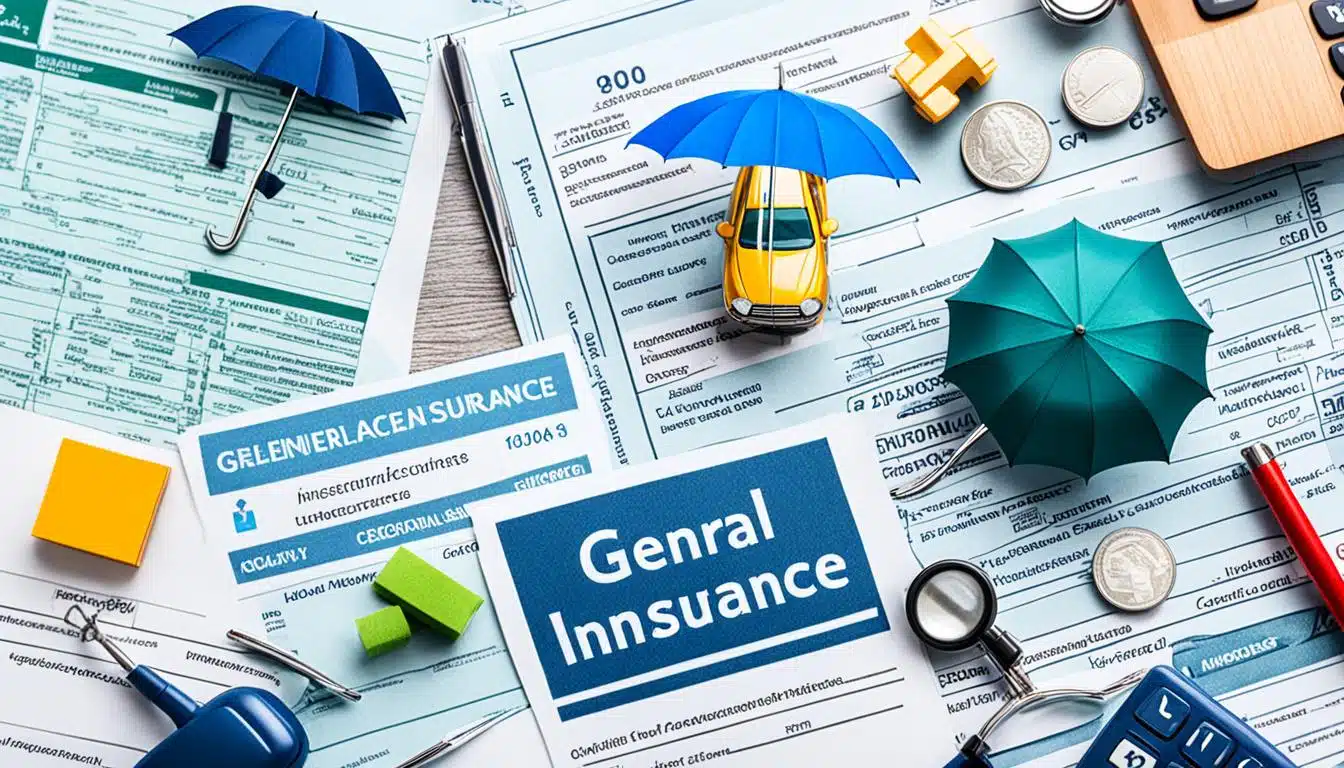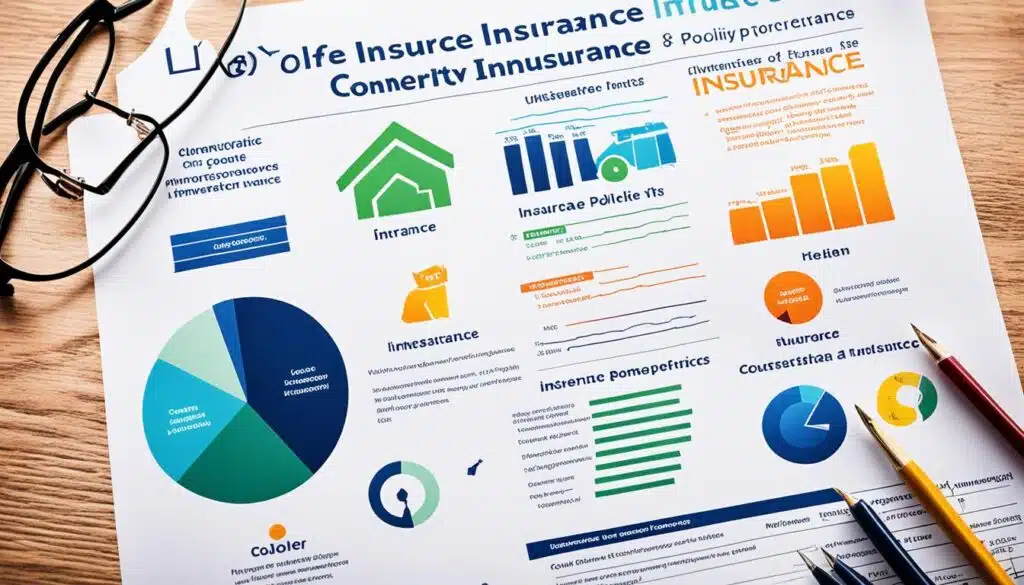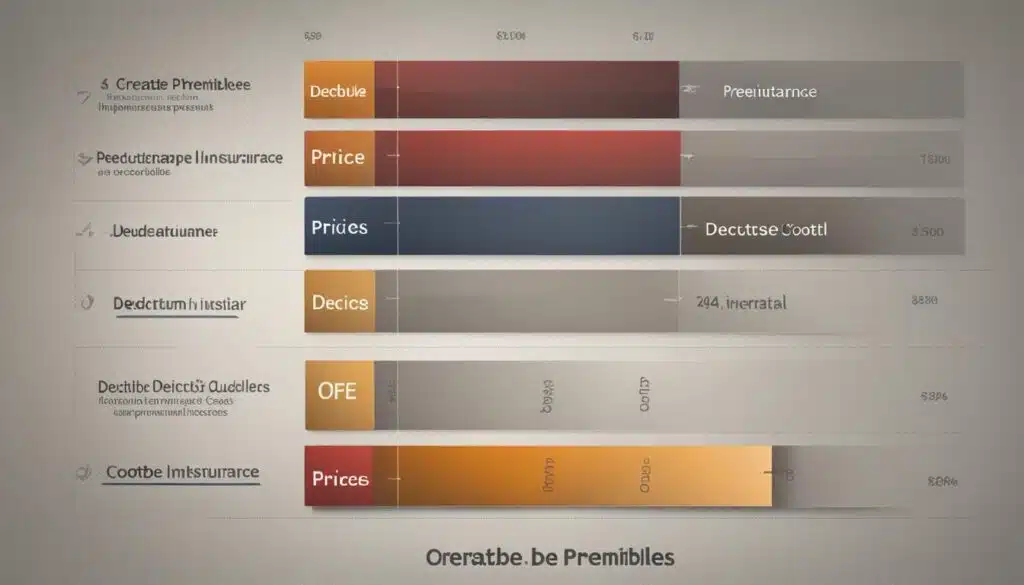General Insurance An insurance policy is a legal contract between the insurance company (the insurer) and the insured person(s), business, or entity. It provides coverage and protection against financial losses in the event of certain specified contingencies or perils. Insurance policies have four basic parts: the declaration page, insuring agreement, exclusions, and conditions.
The declaration page contains details about the insured, the property or risks covered, policy limits, and policy duration. The insuring agreement outlines what is covered by the policy, either by specifying named perils or providing all-risk coverage except for excluded losses. Exclusions take away coverage for specific perils, losses, or property. Conditions are provisions that qualify the insurer’s promise to pay or perform, such as filing a proof of loss or cooperating during investigations.
Insurance policies may also include a Definitions section, and changes or modifications can be made through endorsements or riders.
Key Takeaways: General Insurance
- Insurance policies are legal contracts that provide coverage and protection against financial losses.
- The four basic parts of an insurance policy are the declaration page, insuring agreement, exclusions, and conditions.
- The declaration page contains essential information about the insured, property or risks covered, policy limits, and duration.
- The insuring agreement specifies what is covered, either by naming specific perils or providing all-risk coverage except for excluded losses.
- Exclusions remove coverage for specific perils, losses, or property.
The Definition and Purpose of Insurance
Insurance is a contract in which an insurance company provides financial protection or reimbursement to the policyholder against losses from specific contingencies or perils. Its purpose is to mitigate the financial impact of unexpected events by transferring the risk of loss to the insurer.
Also Read: Top 20 Popular Beaches In The World
Insurance policies cover various aspects of life, such as health, life, auto, and home, offering peace of mind and financial stability in the face of accidents, injuries, property damage, or liability claims. By paying regular premiums, individuals and businesses ensure that they are protected financially and have access to funds to cover expenses and recover from losses.
Choose the insurance that suits your needs and offers the necessary protection for your assets and well-being.
How Insurance Works
Understanding how insurance works is essential for individuals and businesses seeking financial protection. Insurance is a process that involves various components, such as premiums, policy limits, and deductibles. By comprehending these factors, policyholders can navigate the insurance landscape effectively.
Also Read: Top 20 Luxurious Hotels Revealed Across The Globe
When applying for insurance coverage, the insurance company assesses the risk of the policyholder. Factors like age, location, health status, and coverage needs are evaluated to determine the level of risk. Based on this assessment, the insurer sets a premium, which is the amount paid regularly for the coverage.
Policies have a specific term, during which the policyholder is covered and can make claims. The term could be yearly, half-yearly, or monthly, depending on the policy. The policy limit is the maximum amount the insurer will pay for covered losses, and it can vary depending on the type of coverage. This limit ensures that the policyholder receives compensation up to a certain threshold.
Deductibles are a crucial component of insurance policies. They represent the amount that the policyholder must pay out of pocket before the insurer pays a claim. By having deductibles, the policyholder shares some of the financial responsibility, which helps in managing risk. Higher deductibles generally result in lower premiums, providing a cost-saving incentive to the policyholder.
Also Read: Top 20 Iconic Restaurants You Need To Try
When a covered event occurs, the policyholder can file a claim with the insurance company. This involves notifying the insurer about the incident and providing any required documentation. If the claim is approved, the insurer will pay for the losses or damages, up to the policy limit. Having insurance coverage ensures that policyholders have financial support to recover from unexpected events and provides a sense of security during challenging times.
Summary of How Insurance Works:
| Component | Description |
|---|---|
| Premium | The amount paid regularly for insurance coverage. |
| Policy Limit | The maximum payout the insurer will provide for covered losses. |
| Deductible | The amount the policyholder must pay out of pocket before the insurer pays a claim. |
| Claims Process | Policyholders can file a claim when a covered event occurs, and if approved, the insurer will provide compensation. |
Types of Insurance
Insurance plays a vital role in providing financial protection to individuals and businesses. There are various types of insurance available, each serving different purposes and covering specific risks. Let’s take a closer look at some of the most common types of insurance:
Also Read: Easy Ways To Manage Your Money For A Better Future
1. Auto Insurance
Auto insurance provides coverage for accidents, injuries, and property damage caused by or to a vehicle. It is mandatory in most states and helps protect both the driver and the vehicle.
2. Home Insurance
Home insurance protects against property damage, theft, and liability claims related to a person’s residence. It provides coverage for both the structure of the home and personal belongings inside.
3. Health Insurance
Health insurance covers medical expenses and provides financial support for healthcare services. It helps individuals manage the cost of medical treatments and offers peace of mind during times of illness or injury.
4. Life Insurance
Life insurance provides a payout to beneficiaries upon the policyholder’s death. It offers financial protection for loved ones, helping them manage expenses and maintain their quality of life in case of the policyholder’s untimely demise.
5. Travel Insurance
Travel insurance covers expenses and losses associated with traveling. It provides protection against trip cancellations, medical emergencies, lost luggage, and other unforeseen events that can disrupt or impact your travel plans.
Each type of insurance has specific coverage options and benefits tailored to address the respective risks and needs it aims to protect against. Whether you’re looking to secure your vehicle, safeguard your home, protect your health, provide financial stability for your loved ones, or ensure a worry-free travel experience, insurance offers the necessary coverage and peace of mind.
Also Read: Affordable Health Insurance: How To Find Wallet-Friendly Plans
Having the right insurance policies in place can help mitigate financial risks and provide the necessary support when unexpected events occur.
The Importance of Insurance
Insurance plays a vital role in providing financial protection and risk management for individuals and businesses. It offers peace of mind and safeguards against unexpected events that can lead to significant financial losses. By having the right insurance coverage, you can protect your assets and ensure that you have the necessary resources to recover from unforeseen circumstances.
One of the primary reasons insurance is important is its ability to provide financial protection. Whether it’s your home, vehicle, or personal belongings, insurance coverage allows you to safeguard these assets from damages, theft, or liability claims. In the event of an accident, injury, or property damage, insurance provides the necessary funds to cover expenses and help you recover.
In addition to financial protection, insurance serves as an essential tool for risk management. It allows individuals and businesses to transfer the risk of potential losses to an insurance company. By paying regular premiums, you ensure that you have a safety net in place to mitigate the impact of unexpected events. Instead of bearing the full financial burden yourself, insurance helps distribute the risk among a larger pool of policyholders.
Furthermore, insurance offers peace of mind. Knowing that you have financial protection and support in times of need can alleviate worry and stress. Whether it’s a medical emergency, a natural disaster, or a liability claim, insurance provides the peace of mind that you have the necessary resources to handle the situation without significant financial strain.
Overall, insurance plays a crucial role in ensuring financial stability and providing peace of mind. It offers the necessary financial protection, helps manage risk, and allows individuals and businesses to recover from losses. By having insurance coverage in place, you can navigate unexpected events with confidence, knowing that you have the necessary support to overcome challenges and preserve your financial well-being.
Factors Affecting Insurance Premiums
Insurance premiums are influenced by various factors that assess the risk associated with the policyholder. These factors play a crucial role in premium calculation, as they help insurance companies determine the appropriate amount to charge for coverage.
Auto Insurance Premiums
Auto insurance premiums are influenced by several key factors, including:
- Age: Younger drivers often face higher premiums due to their limited driving experience.
- Driving history: A clean driving record with no accidents or traffic violations can lead to lower premiums.
- Location: Insurance rates may vary based on factors like crime rates, population density, and accident frequency in the policyholder’s area.
- Type of vehicle: The make, model, and year of the insured vehicle can impact premiums. Vehicles with high safety ratings and lower theft rates may result in lower premiums.
Home Insurance Premiums
When it comes to home insurance, the following factors can influence premiums:
- Property location: The location of the insured property plays a role in determining premiums. Factors such as proximity to natural disaster-prone areas or high crime areas can affect rates.
- Claims history: Previous claims on a property can impact insurance premiums, with a higher number of past claims potentially leading to higher rates.
- Coverage amounts: The coverage limits chosen by the policyholder can also affect premiums. Higher coverage limits typically result in higher premiums.
Health Insurance Premiums
When it comes to health insurance, the following factors may impact premiums:
- Age: Older individuals generally face higher health insurance premiums due to increased health risks.
- Sex: In some cases, insurance companies may charge different premiums based on gender.
- Health status: Pre-existing medical conditions or a history of health issues can affect health insurance premiums.
- Coverage levels: The extent of coverage chosen by the policyholder can influence premium amounts.
Life Insurance Premiums
Life insurance premiums are influenced by factors such as:
- Age: Premiums tend to increase as the insured individual gets older.
- Tobacco use: Smokers are generally charged higher premiums due to the increased health risks associated with smoking.
- Health: The overall health of the policyholder can impact life insurance premiums.
- Coverage amount: The amount of coverage desired by the policyholder affects premium calculations.
In summary, insurance premiums are determined through a risk assessment process that considers various factors relevant to each type of insurance. By understanding these factors, policyholders can make informed decisions when choosing insurance coverage that suits their needs and budget.
Understanding Policy Limits
In an insurance policy, policy limits define the maximum amount that the insurer will pay for covered losses. These limits play a critical role in determining the extent of financial protection provided by an insurance policy. Let’s explore the different types of policy limits and understand how they work.
Types of Policy Limits
Insurance policies can have various types of policy limits, each serving a specific purpose in defining coverage. Here are the most common types:
- Per-Occurrence Limits: These limits specify the maximum amount the insurer will pay for a single event or claim. For example, if a policy has a per-occurrence limit of $100,000, the insurer will not pay more than $100,000 for a single event or claim.
- Per-Person Limits: Per-person limits determine the maximum payout for an individual’s claims. These limits are often associated with liability coverage, such as bodily injury liability in auto insurance. For instance, if a policy has a per-person limit of $50,000 and there are multiple injured parties, the insurer will not pay more than $50,000 to any individual.
- Combined Limits: Combined limits provide an overall maximum limit for combined bodily injury and property damage claims. For instance, if a policy has a combined limit of $300,000, the insurer will not pay more than $300,000 for all bodily injury and property damage claims combined.
- Aggregate Limits: Aggregate limits set the total amount that can be paid out for all claims within a specified period, typically a policy term. These limits are commonly found in liability policies, such as general liability insurance for businesses. If a policy has an aggregate limit of $1 million, the insurer will not pay more than $1 million for all claims during the policy term.
- Split Limits: Split limits combine multiple limits for different coverage types. For example, in auto insurance, split limits may be expressed as three different amounts, such as $100,000/$300,000/$50,000. The first number represents the per-person bodily injury limit, the second number is the per-occurrence bodily injury limit, and the third number denotes the property damage limit.
- Special Limits: Special limits apply to specific items or properties under an insurance policy. These limits are often lower than the overall policy limits and can be found in policies that cover valuable items like jewelry, artwork, or collectibles. For instance, a policy may have a special limit of $5,000 for jewelry, meaning the insurer will not pay more than $5,000 for a covered loss related to jewelry.
Understanding policy limits is crucial for policyholders as it helps them determine the maximum coverage amount they can expect from their insurance policies. These limits can vary based on the type of insurance and the specific policy terms and conditions.
Having a clear understanding of policy limits enables individuals and businesses to make informed decisions when selecting insurance coverage that aligns with their financial protection needs. By knowing the maximum coverage amount, policyholders can assess their risk exposure and ensure they have adequate protection against potential losses.
The Role of Deductibles in Insurance
Deductibles play a crucial role in insurance policies, affecting both coverage and costs. Let’s explore the definition of deductibles, different types, and their impact on insurance premiums.
Deductible Definition
A deductible is the initial amount that the policyholder must pay out of pocket before the insurance company contributes to the remaining claim expenses. It serves as a way to share the financial responsibility between the insured and the insurer.
Deductible Types
There are several types of deductibles that insurers may offer:
- Per-policy deductibles: This type of deductible applies to all claims made under a specific insurance policy. For example, if you have a $500 per-policy deductible, you would be responsible for the first $500 of each claim, regardless of their individual amounts.
- Per-claim deductibles: With per-claim deductibles, each individual claim has its own deductible. For instance, if you have a $250 per-claim deductible and submit three separate claims, you would pay $250 for each claim before the insurer covers the rest.
- Individual or family deductibles: Some insurance policies offer individual deductibles for each covered individual or a family deductible that applies to all family members covered under the same policy. Individual deductibles require each person to reach their specific deductible before the insurance company contributes, while a family deductible combines the medical expenses of all family members until the family deductible limit is met.
Impact on Insurance Costs
The deductible amount influences the insurance premiums you pay. Opting for a higher deductible generally leads to lower premiums because the policyholder assumes more financial risk. Insurers often offer a sliding scale, allowing policyholders to choose a deductible that aligns with their risk tolerance and financial capabilities. However, it is essential to select a deductible that you can comfortably afford in case of a claim.
Remember, smaller claims that are below the deductible amount are typically not covered by insurance. Deductibles are in place to discourage policyholders from making insignificant or frequent claims, as this could result in higher premiums over time.
By understanding the role of deductibles in insurance, you can make informed decisions about the coverage and costs that best suit your needs.
The Benefits of Insurance
Insurance offers several advantages for individuals and businesses, providing them with financial protection and peace of mind. Here are some of the key benefits:
Financial Protection
One of the primary advantages of insurance is the financial protection it offers. Insurance policies are designed to safeguard policyholders against unexpected events, such as accidents, natural disasters, or liability claims. In the event of covered damages or losses, insurance provides the necessary funds to repair or replace assets, ensuring that policyholders can recover without facing significant financial strain.
Asset Preservation
Insurance plays a critical role in asset preservation. Whether it’s your home, vehicles, or personal belongings, insurance coverage helps protect these valuable assets from potential risks and hazards. By providing funds for repairs, replacement, or compensation, insurance safeguards your assets and preserves their value, allowing you to maintain your quality of life or business operations.
Peace of Mind
Knowing that you have insurance coverage can bring peace of mind. Life is unpredictable, and accidents or unexpected events can cause significant stress and worry. Insurance alleviates these concerns by offering a safety net and financial protection. With insurance in place, you can have peace of mind, knowing that you have a plan to manage potential financial hardships that may arise.
Risk Management
Insurance enables effective risk management by allowing policyholders to transfer potential financial loss to the insurance company. By paying regular premiums, individuals and businesses ensure that they have the necessary support to recover from losses and continue their daily lives or operations. Insurance mitigates the impact of unforeseen circumstances and provides a comprehensive risk management strategy.
In conclusion, insurance offers numerous advantages, including financial protection, asset preservation, peace of mind, and effective risk management. By understanding the benefits of insurance and selecting the right coverage, individuals and businesses can navigate uncertain situations with confidence and security.
The General Auto Insurance Review
The General Car Insurance Cost
Car Insurance Discounts
Best Car Insurance Companies 2024
The General Car Insurance Reviews: The Bottom Line
The General Insurance Reviews
Car Insurance from The General
The General auto insurance coverages
Types of Car Insurance Coverage Provided by The General
Find Cheap Car Insurance from WalletHub Partners
Trust National General with your auto coverage
Conclusion
Insurance is an essential financial tool that provides individuals and businesses with the necessary financial protection and peace of mind. By understanding insurance policies, coverage options, premiums, deductibles, and policy limits, policyholders can make informed decisions and select the right coverage to meet their specific needs.
Transferring the risk of potential losses to insurance companies enables policyholders to mitigate the financial impact of accidents, injuries, property damage, or liability claims. Insurance acts as a safety net, preserving assets and ensuring that individuals and businesses can confidently recover and continue their lives or operations in the face of unexpected events.
In summary, insurance is a crucial component of financial planning. It offers a range of benefits, including asset protection, risk management, and financial stability. By choosing the appropriate insurance coverage and maintaining a comprehensive understanding of policy terms, individuals and businesses can safeguard their future and prepare for any unforeseen circumstances.
FAQs
Q: What is general insurance and how does it differ from life insurance?
A: General insurance covers a range of non-life related risks such as property, health, travel, and vehicles. In contrast, life insurance provides financial protection in case of death or disability.
Q: How can I get insurance quotes for my car?
A: You can easily get insurance quotes for your car by reaching out to insurance companies directly or using online comparison websites.
Q: What factors determine car insurance rates?
A: Car insurance rates are influenced by factors such as the driver’s age, driving record, type of vehicle, location, and coverage options chosen.
Q: Can I get discounts on my car insurance policy?
A: Yes, insurance companies often provide discounts for safe driving records, multiple policies, anti-theft devices, and more. It’s best to inquire about available discounts with your insurance provider.
Q: Is it important to review my insurance policy regularly?
A: Yes, it’s crucial to review your insurance policy regularly to ensure it still meets your needs, covers new assets or risks, and to potentially find ways to save on premiums.
Q: What does full coverage car insurance mean?
A: Full coverage car insurance typically includes liability, collision, and comprehensive coverage. It provides financial protection for damage to your vehicle and others involved in an accident.
Q: How can I compare car insurance quotes effectively?
A: To compare car insurance quotes effectively, make sure to review coverage options, deductibles, discounts, customer reviews, and overall value offered by different insurance companies.











